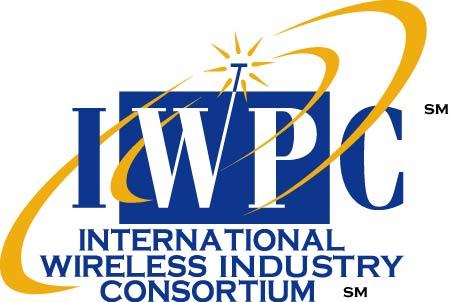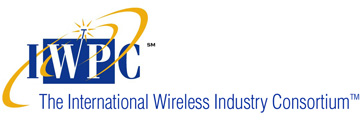Evolving Mobile Backhaul
Access Network Connectivity for Ultra-Dense
Urban LTE-A and 5G
Networks
Keynote by:

When
January 21-23, 2015
Register
Limited to 100 seats
First Registered, First Served!
Attendance open to Network Infrastructure, mmWave Thrusts or Full IWPC Members
Introduction
As Mobile Networks evolve through 4G and LTE-A, how can transport networks support increasing bandwidth requirements. Industry leaders will discuss and debate new network topologies, architectures and trends aimed at delivering the optimum performance in terms of throughput, latency and resilience.
Workshop Goals
- Assess state-of-the-art and explore evolutionary paths for backhaul and fronthaul capabilities
- Understand LTE-A RAN evolution and transport requirements
- Assess current limitations of current wireless solutions and potential for future growth
- Consider what 5G will mean for access network connectivity
Agenda
|
DAY 1 Wednesday 19:00 |
Evening Reception
|
|||||||
|
DAY 2 Thursday 08:00 |
Opening Remarks and Introduction |
 |
||||||
|
09:00
|
Host Keynote Remarks
|
Access Network Connectivity for Ultra Dense Urban LTE-A and 5G Network Principal Network Architect
|
||||||
|
10:00 |
Networking Break |
|||||||
|
10:40 |
Standards Update |
Introduction to ETSI Millimeter Wave Transmission ISG Chief Engineer, NEC
|
||||||
|
11:20 |
OEM Perspectives
|
Microwave for Ultra-Broadband Era-Addressing the Challenges of LTE-A and 5G Backhaul Product Strategy Manager
|
||||||
|
12:00 |
Networking Lunch |
|||||||
13:00 |
OEM Perspectives (Continued) |
Emerging Trends and Applications of Fixed Wireless Services Chief Engineer
Evolution in Microwave Technology and Application to Support 4G and in Perspective 5G Mobile Networks Senior Marketing Manager
Mixing Wireless Technologies and Architectures for Large Scale Wireless Backhaul for Small Cells Director of Product Management for Europe
|
||||||
|
15:00 |
Networking Break |
|
||||||
|
15:40 |
OEM Perspectives (Continued) |
Microwave towards 2020 Head of Portfolio and strategy
What's Tiny, Fast and Sits on a Pole? That should be Your Street-Level Millimeter-Wave Backhaul Director of Product Management and Marketing
|
||||||
|
17:00 |
Panel Session
|
|
||||||
|
17:40 |
Adjourn for Day |
|||||||
|
18:30 |
Networking Dinner (Gunnewig Restaurant Top 180) |
Bus transportation provided to and from hotel |
||||||
|
DAY 3 Friday 08:00
|
Technology Enablers
|
The evolving role of Synchronization in Mobile Backhaul Consulting Engineer
A Novel Technology to Increase Spectral Efficiency for Mobile Backhaul Applications Industry Standards Manager
mmw Edgehaul: The Third Network Business Lead
|
||||||
|
10:00 |
Networking Break |
|
||||||
|
10:40 |
Technology Enablers (continued)
|
Millimeter Wave Mesh Network Based on SDN & Openflow Chief Marketing Officer
RF Transceiver Reduce OPEX/CAPEX of mmWave Backhaul Director Program Management
Location Assisted mm-Wave X-Haul Group Leader
|
||||||
|
12:10 |
Networking Lunch |
|||||||
|
13:10 |
Technology Enablers (continued)
|
Unobtrusive Antennas for Small Cell Backhaul Product Manager
A New Class of Performance and Profitability - Class 4 antennas promise greater capacity and financial opportunities for operators Product Line Manager
Impact of Antenna Design on Innovation CEO
|
||||||
|
14:40 |
Networking Break |
|
||||||
|
15:20 |
CLOSING PANEL |
|
||||||
|
|
Takeaways and Closing Remarks |
|
||||||
|
|
Adjourn |
|
||||||
|
|
Dinner (Dutch*) |
For those who desire to join us, we get together to enjoy good friends, good food, good wine, and (really) bad jokes. |
FAQs
- What is the deadline for presentation/handout materials?
- What can I do to prepare for speaking an at IWPC workshop?
- Who are the attendees?
- What are the costs/registrations fees?
- Hotel information?
- What are the travel options from the airport to the hotel?
- Are there any audiovisual requirements?
- Will business cards be collected?
- What is the dress code?
- How will handout materials be provided?
- What is the deadline for
presentation/handout materials?
Deadline for electronic version of presentation/handout materials: Friday, January 9, 2015.
- What can I do to prepare for speaking an at IWPC workshop?
Click on the link below for a short video guide regarding preparing for and improving your IWPC presentation:
- Who are the attendees?
- We do not permit the Press.
- We do not permit Analysts.
- We do not permit Consultants.
- We do not permit 3rd party sales reps.
- We only permit "first hand knowledge experts" in business and technology issues, prepared to contribute to the discussion.
- What are the costs/registrations fees?
ALL Hosts, Speakers, Panel Members and Attendees will be asked to cover out-of-pocket workshop costs such as conference room costs, food (Social Reception plus First Day breakfast/lunch/dinner plus Second Day breakfast/lunch plus Breaks), audio/visual costs, etc.
These costs will be $845 (USD) per person. (For IWPC Members only.)
ALL Hosts, Speakers, Panel Members and Attendees will be asked to pay this fee in advance with either Visa, MasterCard, American Express, cash, personal check or business check. Make checks payable to IWPC.
- Hotel information?
Hilton Dusseldorf
Georg-Glock Strasse 20,
D-40474, Dusseldorf, Germany
Phone: +49-221-43770
Hotel WebsiteRoom Reservations can be made by email: [email protected] ; please mention 'IWPC' when you do so. The IWPC room block rate is 159 Euros.
The cut-off date for reservations is Sunday, December 28, 2014. After that date, rooms cannot be guaranteed at the IWPC rate.
- What are the travel options from the airport to the hotel?
Directions and transportation options will be posted as soon as possible.
- Are there any audiovisual requirements?
A Computer Projector will be available for the speakers.
In addition, we audiotape all presentations and the interactive discussions. Post workshop, presentations are made available to IWPC Members on the IWPC WEB site, along with “recordings” of all presentations and panel sessions.
- Will business cards be collected?
Business cards will be collected at the door from all attendees. We will make copies of these cards, which will be available to all who provided a business card.
- What is the dress code?
Business casual suggested. No ties, please!
- How will handout materials be provided?
For ALL IWPC members:
All IWPC members are invited to submit materials to be included in the online workshop folder in the IWPC Research Library. This should NOT BE SALES MATERIALS. Rather, we suggest it contain technical information about your technology as it relates to the workshop topics.
For all companies who will be making a presentation at the Workshop:
You are invited to submit an advance copy of your presentation, complete with graphics and illustrations.
These materials will be included on the IWPC website Research Library.
Please submit these materials either by email, as a Word for Windows file, Power Point files or PDF files.
Please use this FREE FTP site to send electronic materials (any size file):







